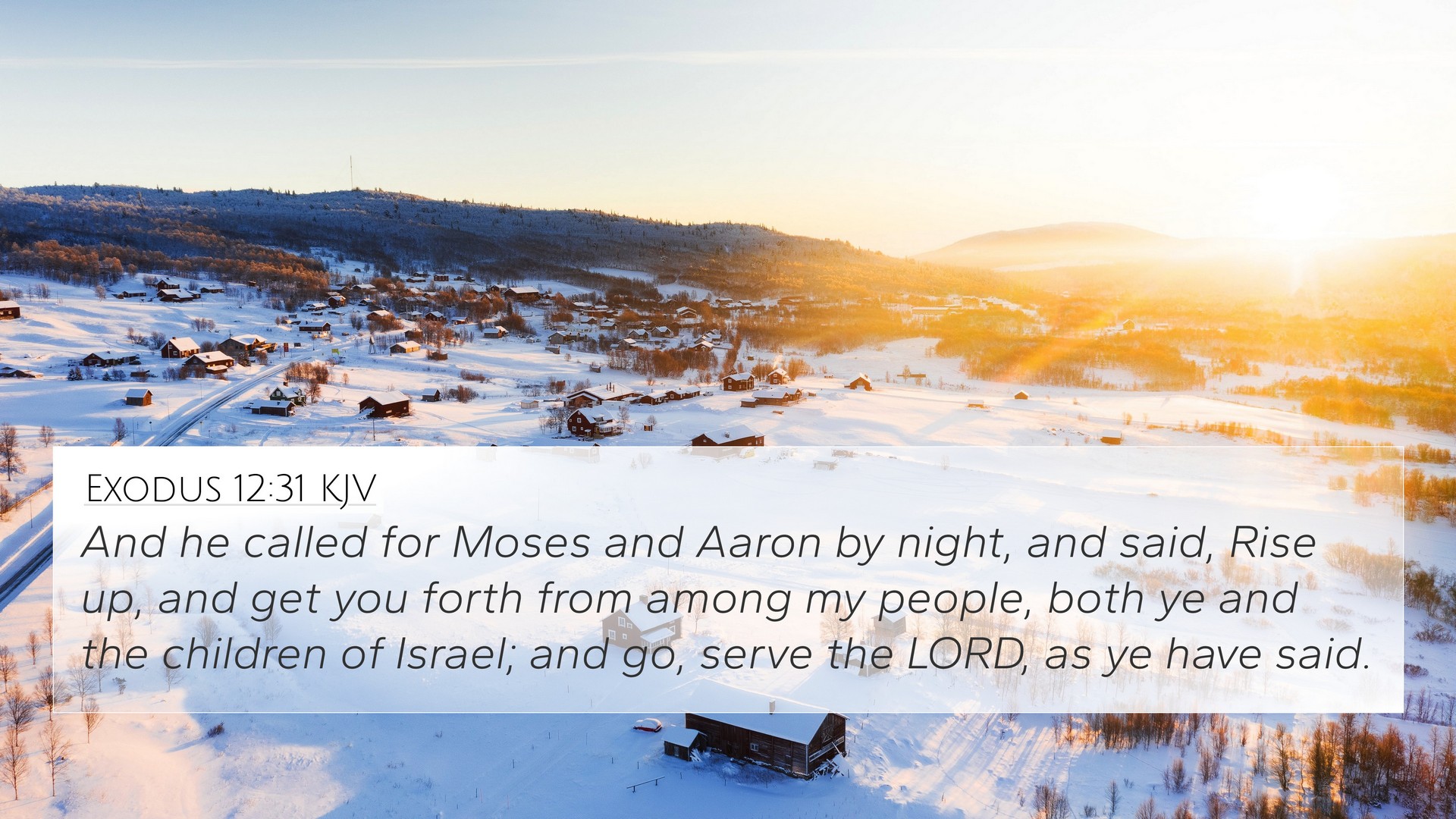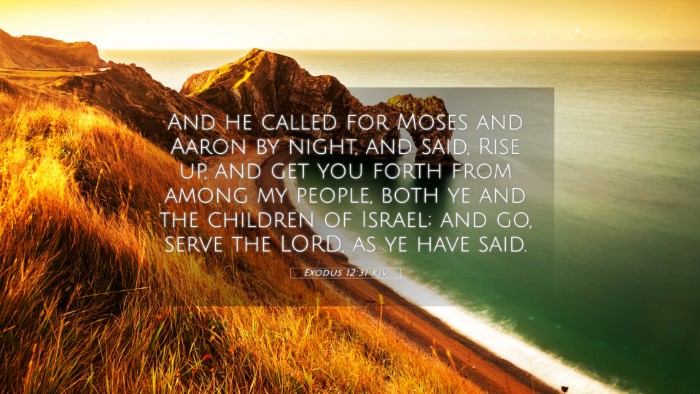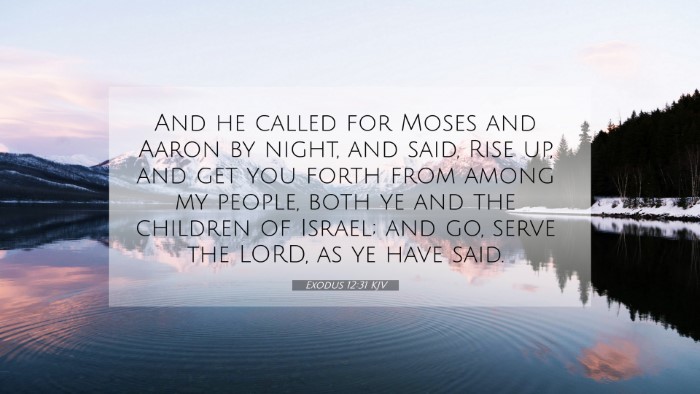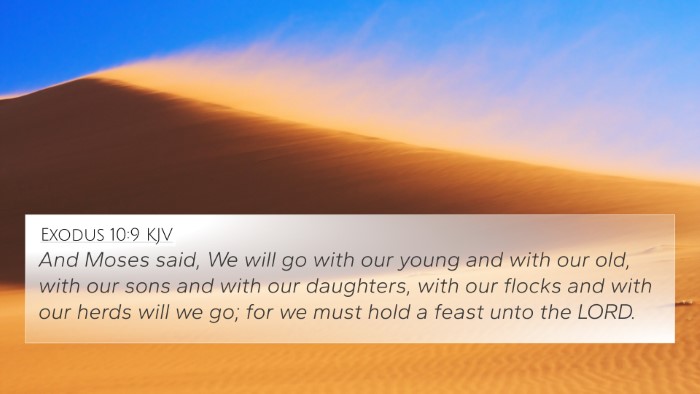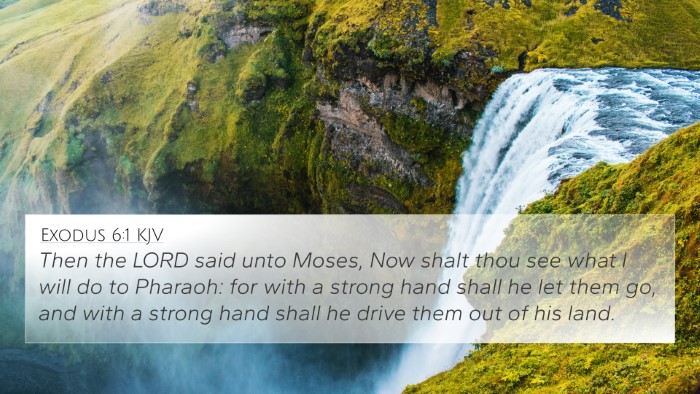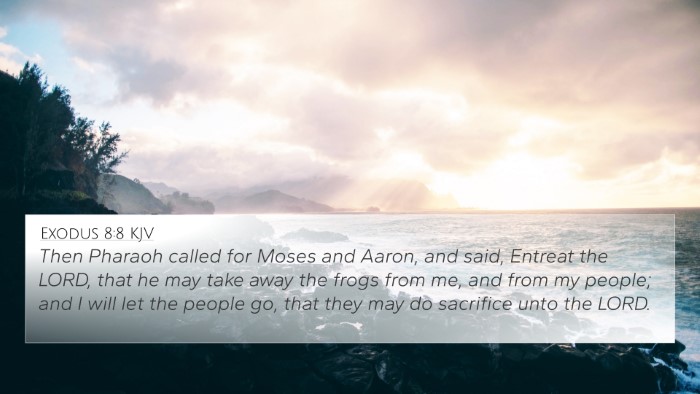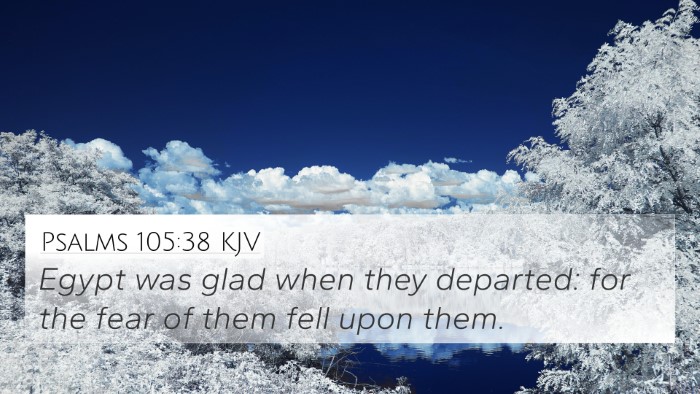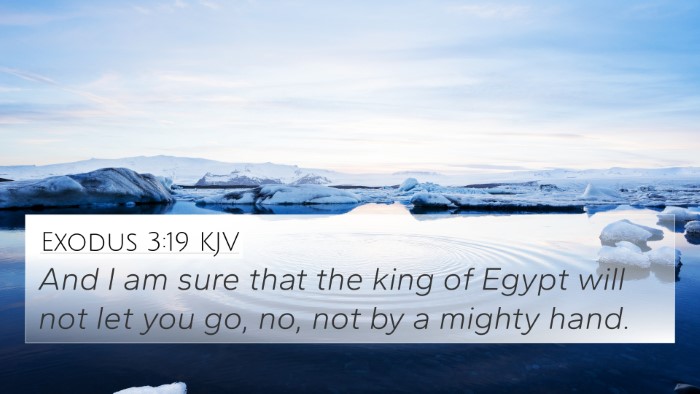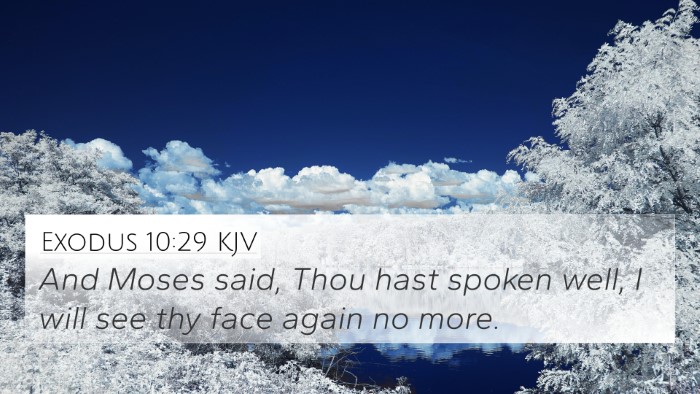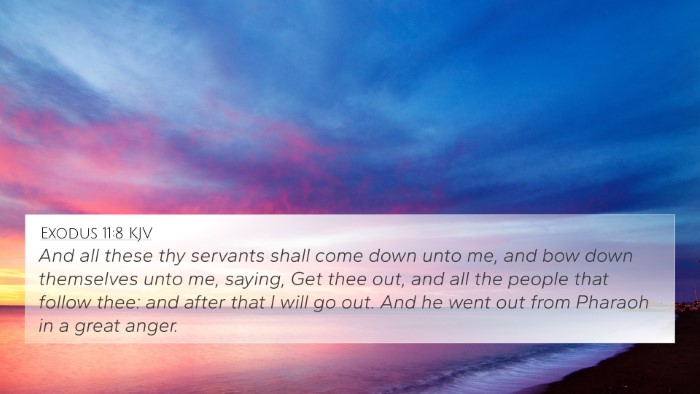Exodus 12:31 - Summary and Interpretation
Bible Verse: "And he called for Moses and Aaron by night, and said, Rise up, and get you forth from among my people, both ye and the children of Israel; and go, serve the LORD, as ye have said."
This crucial moment in Exodus marks a significant transition in the Israelites' history, encapsulated in a directive that is not just about departure, but also the fulfillment of God's promise.
Key Themes
- Divine Authority: The command by Pharaoh reflects the overwhelming authority of God, who orchestrates events in ways that fulfill His promises to His people.
- Deliverance: The act of rising up signifies the impending liberation of the Israelites from bondage in Egypt, an essential narrative of redemption that echoes throughout scripture.
- Obedience and Urgency: The urgency in Pharaoh's command emphasizes the significance of immediate obedience to God's call.
Interpretative Insights
Matthew Henry explains that this verse depicts not only the physical act of leaving Egypt but also illustrates the spiritual journey towards serving God. Pharaoh’s sudden change and instruction highlight the tension between his pride and the overpowering will of God.
Albert Barnes elaborates on the idea that this night-time exodus was pivotal. He notes that this swift departure signifies a break from idol worship and a movement towards dedicating oneself wholly to God.
Adam Clarke further emphasizes the symbolic meaning behind this event, linking it to the overarching theme of salvation. He posits that the command was a precursor to the Israelites' covenantal relationship with God, establishing His authority over Pharaoh and the land of Egypt.
Bible Verse Cross-References
- Exodus 3:10: God's initial call to Moses to lead the Israelites out of Egypt.
- Exodus 12:14: The Passover, which precedes this demand, emphasizes God's method of redemption.
- Exodus 12:29-30: The death of the firstborn, which signals the urgency of the exodus.
- Exodus 14:13-14: God instructs Moses after leaving, promising deliverance through the Red Sea.
- Deuteronomy 6:12: A reminder to the Israelites to remember their deliverance from Egypt.
- Psalm 105:43-45: Reflects God's faithfulness to His covenant and the fulfillment of His promises as seen in the Exodus.
- Acts 7:36: Stephen recounts the story of Egypt and deliverance, connecting it to the New Testament understanding of Jesus as Deliverer.
Connections Between Bible Verses
The connections between Exodus 12:31 and other biblical texts highlight the continuing narrative of God’s redemptive plan:
- The Old Testament lays foundational truths that resonate with New Testament teachings, particularly in the context of salvation through obedience.
- In Hebrews 11:28, Moses’ faith is highlighted, linking it to the theme of salvation and deliverance.
- Similarities can be found in Luke 22:15 where the Last Supper parallels the Passover, illustrating the continuity in God’s saving acts.
- The book of Revelation (Revelation 7:14) reflects the ultimate redemption of God’s people, tying back to the themes of deliverance initiated in Exodus.
Understanding Through Cross-Referencing
Using a comprehensive Bible cross-reference system, one can explore themes of freedom, deliverance, and God's covenantal promises. This system allows one to delve deeper into connecting verses across both testaments.
Conclusion
Exodus 12:31 encapsulates a key moment of liberation and obedience in the biblical narrative, urging believers to recognize God's sovereignty and the importance of responding to His call. Through cross-referencing various scriptures, we gain a richer understanding of its implications and theological significance.
